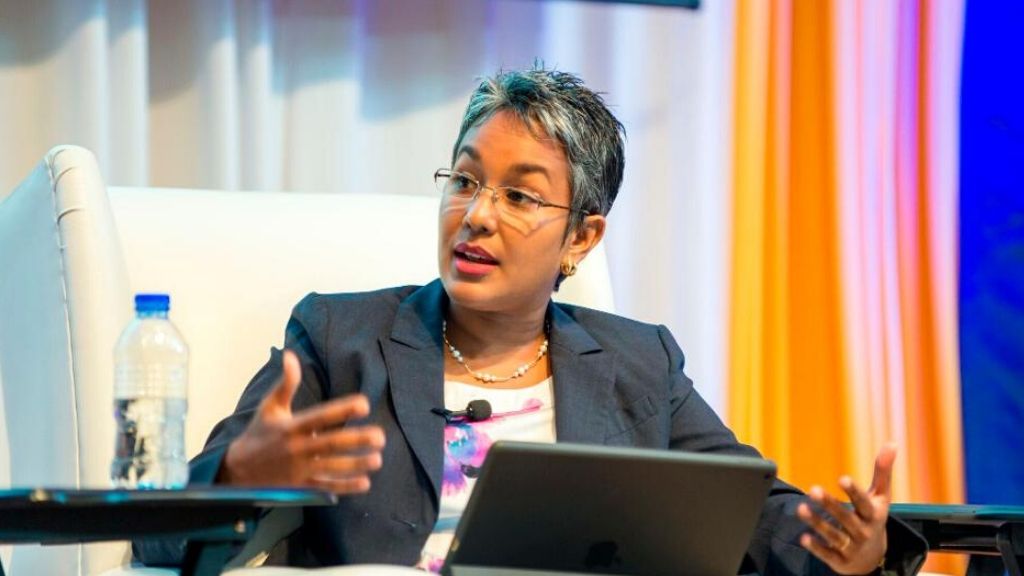The mass media has been accused of heavily influencing perceptions about what is reality and what is not. Take for example, those popular movies and investigative television series in which the Caribbean, particularly, the Cayman Islands, are portrayed as places to “hide dirty money”.
And though the region has long ditched any banking secrecy laws that may have existed, some people still believe that you can secretly park millions of dollars in ill-gotten gains, or even hide wealth from your spouse or business partners, in offshore accounts in the region, and no one would know.
That is the perception. And while it may be possible to carry out any underhanded, nefarious activity anywhere under the sun, given the layers of regulations, procedures, and processes, secretly hiding money in a bank in Barbados is not an easy feat.
The facts are that offshore banks are not illegal operations, and so, using offshore banks as a pejorative term for Caribbean financial services centres, should come to an end.
If there is, or was, an original offshore secret bank, you would have to turn to Europe and the Swiss, where the term a “Swiss Account” was coined.
At one point Swiss bank accounts did not even carry names, as that country’s banking secrecy laws offered protection to corrupt political leaders and the wealthy to literally hide clean and dirty money. The country has since agreed to share with foreign governments, some information about its banking clients.
It has been widely reported that even the United States allows the practice of banking secrecy. In recent years, the United States has become one of the world’s favourite tax havens. Nevada, Wyoming, and South Dakota now hold a large amount of foreign money, but the reason is not primarily for favourable tax treatment.
With several updates to our legislative framework and much more emphasis and attention paid to the matter of money laundering, Barbados has tried its utmost to make our country as money-laundering proof as possible.
Almost 15 years ago while addressing a Caribbean Financial Action Task Force (CFATF) Anti-money Laundering and Counter Financing of Terrorism (AML/CFT) Compliance Conference in Trinidad and Tobago, that country’s Central Bank Governor Ewart Williams, warned of the danger posed by allowing proceeds of criminal activity and the use of the banking system to fund terrorism.
“When a financial institution is used, wittingly or unwittingly by criminal elements (or terrorists), it risks damage to its reputation. And when a financial centre is widely perceived to be vulnerable to money laundering, it runs the risk of losing clean money and reputable investors.
“And once the integrity of an institution or a financial centre is brought into question, its long-term viability is at risk with potentially serious economic consequences.”
The former Central Bank Governor was quite correct. It can be fairly argued that the position being taken by the European Union (EU), for example, to blacklist only small island developing countries, even in cases where the Financial Action Task Force (the global regulator of sorts) has not so designated countries, was significant over-reach by the Europeans.
The blacklisting of Barbados last year, and the six-months battle to be removed from the list, is a clear example of an attempt to ratchet up the “risk of losing clean money and reputable investors”.
It is for this reason that those who operate in the sector are convinced that the rapidly changing regulations governing AML/CFT are part of a carefully designed, and ongoing plan of action to dismantle the international business sectors of countries like Barbados.
Just this week, Barbados-based Trinidadian economist, Marla Dukharan, blasted the EU for what she called racist bullying of small, majority black, developing nations through the policy of blacklisting financial centres.
She said the EU blacklisted one of the world’s poorest nations arguing that the EU reportedly “lost” US$7 million in tax revenue, while an estimated 6 trillion in euros is managed in never-blacklisted Luxembourg”.
She contended: “It is embarrassing that even EU Members of Parliament highlighted the fact that jurisdictions currently on the EU tax haven blacklist account for less than two per cent of worldwide tax revenue losses, and that EU ‘member states forgot something when composing it: actual tax havens.”
And as we chase our proverbial tails trying to satisfy every new rule which the EU and the Organisation for Economic Cooperation and Development (OECD) can conceive, we put our financial institutions under immense strain.
Small institutions such as 600 or 800-member credit unions, or small insurance brokerage firms, are now being ordered by the Financial Services Commission to undertake expensive AML risk assessments and independent audit reviews which can cost up to $10 000, depending on the size of the institution.
We understand that in the national AML/CFT review, the rating was an undesirable one, some say unfair. But our regulatory bodies should also be doing much more to help guide, particularly small institutions, as they wade through the regulatory mire that has been created to please developed countries.




